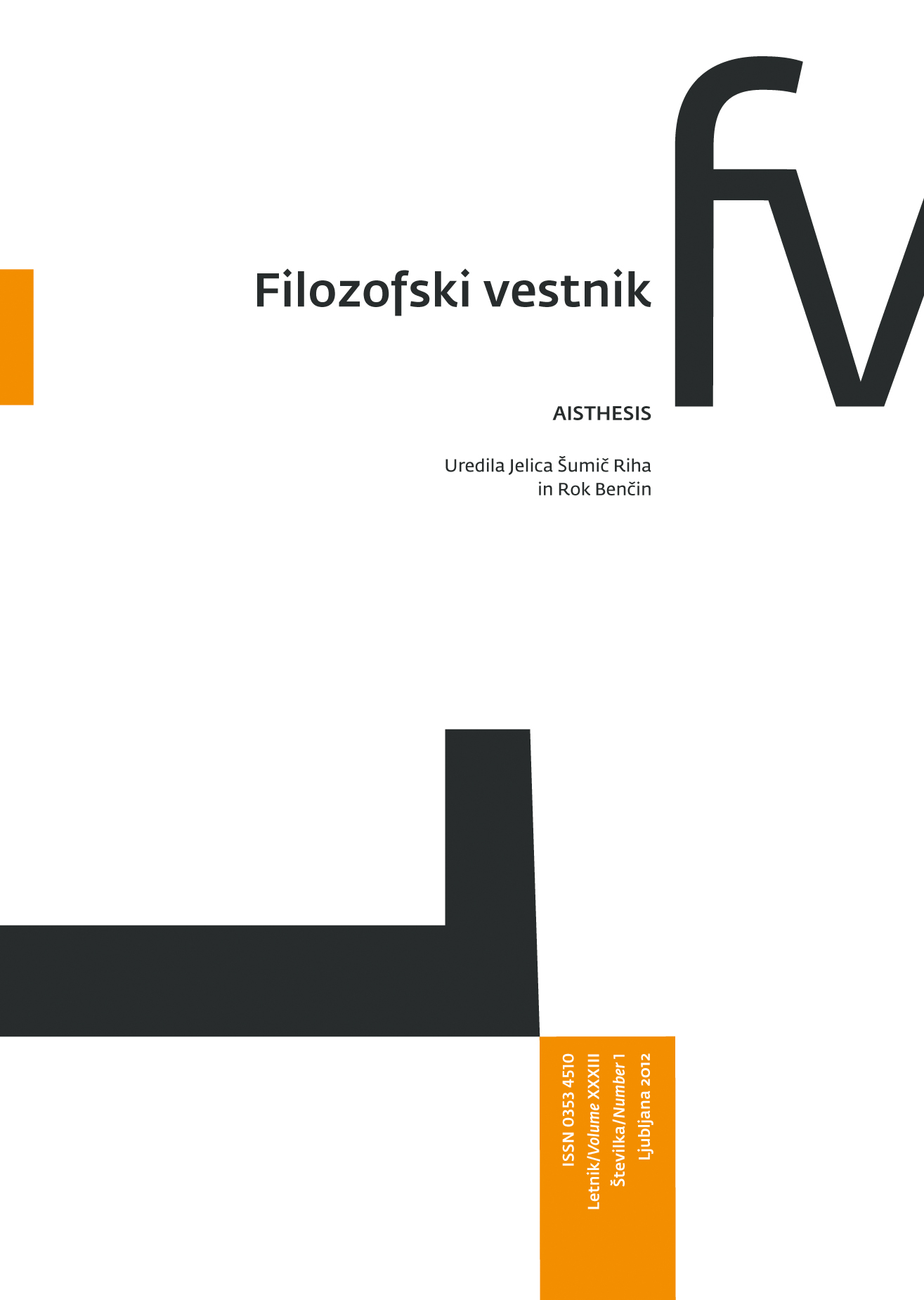Pojem estetskega v Kritiki razsodne moči
Ključne besede:
Reflektirajoča razsodna moč, prezentacija, reprezentacija, občutje ugodja/neugodja, singularnostPovzetek
Članek obravnava razširitev pojma estetskega v Kantovi tretji Kritiki, s katero je objektivni čutnosti čuta dodana še subjektivna čutnost občutja ugodja/neugodja, ki ima aprioren temelj, nima pa nobene spoznavne funkcije. Sestavni del te razširitve je tudi odgovor na problem, kako je mogoče spoznati posebnost posebnega, njegovo ireduktibilno singularnost. Problem zgolj subjektivne čutnosti občutja in problem spoznanja singularnega, ki se spoznanju po definiciji upira, pa sta med seboj povezana v pojmu reflektirajoče razsodne moči kot samostojne spoznavne zmožnosti. V povezavi vseh treh elementov, čutnosti občutja, singularnosti, ki se upira pojmu, in reflektirajoče razsodne moči pa se zarisuje radikalno predrugačenje spoznavne konstitucije realnosti.Prenosi
Podatki o prenosih še niso na voljo.
Prenosi
Objavljeno
2016-02-06
Kako citirati
Riha, R. (2016). Pojem estetskega v Kritiki razsodne moči. Filozofski Vestnik, 33(1). Pridobljeno od https://ojs.zrc-sazu.si/filozofski-vestnik/article/view/4186
Številka
Rubrike
Aisthesis
Licenca
Avtorji jamčijo, da je delo njihova avtorska stvaritev, da v njem niso kršene avtorske pravice tretjih oseb ali kake druge pravice. V primeru zahtevkov tretjih oseb se avtorji zavezujejo, da bodo varovali interese založnika ter da bodo povrnili morebitno škodo.
Podrobneje v rubriki: Prispevki





